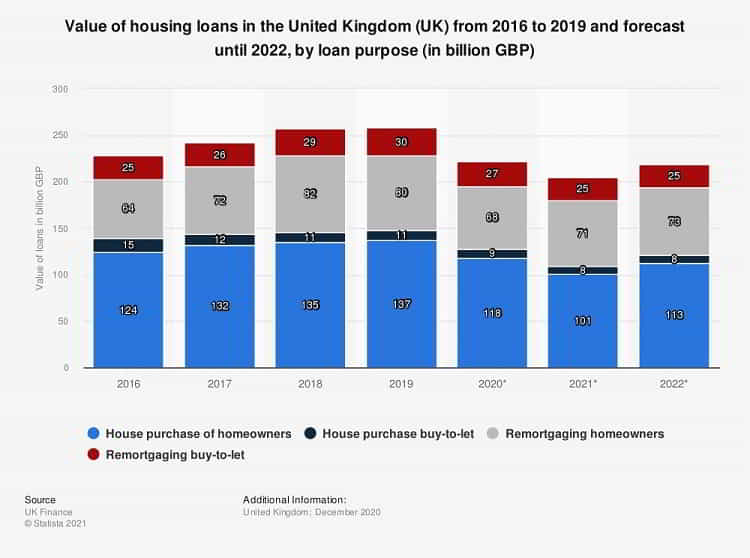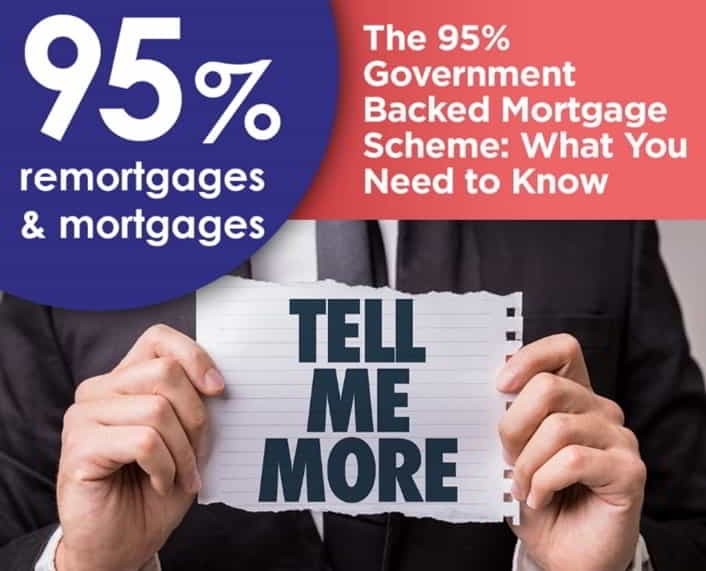MortgageDrive
GET THE BEST MORTGAGE FOR YOU
We designed MortgageDrive to show people that mortgage providers are not for life and that you can save thousands by switching mortgage suppliers once your current deal comes up for renewal. It may be that your current provider advises you stay with them. But MortgageDrive recommends that you check out the whole market and see if there is a better mortgage out there.
You don’t have to spend hours poring over rates and terms you can trust a specialist supplier who searches for the best deal and digitally switches you to another supplier and a better rate. No need to visit branches or go through endless paperwork.
It’s not just about switching mortgages MortgageDrive can also provide help with first time mortgages, buy to let mortgages, longer term retirement mortgages.
Click on a heading below and see a summary, and if you're interested you can GO and read more about it!
Here are some facts and stats about mortgages. GO!
See which type of mortgage might be best for you. GO!
See what government backed schemes there are. GO!
See what the choices are between getting advice or doing it yourself. GO!
If you’re a visitor to our site you can join and download information, assess your own health and create your own action plans, and even contribute to our site. GO!
See what you can do next. GO!
We have some additional information on this subject. GO!
Facts About Mortgages
11 million mortgages in the UK 2021
share of people aged 45-54 buying a house with a mortgage was 28.7% (Statista)
469,000 homeowner re-mortgages in the UK in 2021
Couples with dependent child(ren) as a share of mortgage borrowers was 32.4% (Statista)
3.56% is the average mortgage rate 2022 in the UK
The market share of the biggest mortgage lender Lloyds banking group was 19.5% (Statista)
100 mortgage lenders in the UK
The value of gross mortgage advances in 2021 Q4 was £70.2 billion, 8.4% lower than in 2020 Q4, and the lowest level since 2020 Q3. (FCA)

Which mortgage is best for me
To answer that question, you need to obtain financial advice from a qualified Mortgage Advisor. But before you do that you need to understand more about the types of mortgages so that when you meet with an Advisor you are not clueless and need to take their words as gospel. The more informed you are the better the chances you have of getting the right mortgage.
The first thing to consider is your own position
Your family situation matters - are you buying a property with a partner, with children (existing or planned?
Is this your first mortgage, are you re-mortgaging your existing property or are you moving house?
Is the mortgage actually for a property you plan to live in, or is it for a property you intend to rent out (known as a buy-to-let mortgage)?
Then there's the type of mortgage - is the capital repaid at the end of the term or not (repayment or interest only), how is the interest rate set out (e.g. fixed or variable), and some specialist types of mortgage.
See some details in the tabs below.

Mortgages by purpose
The chart here from Statista (sources FCA and Bank of England) shows the split between mortgages used for house purchase, remortgage, buy to let and buy to let remortgage.
Gross advances on residential loans issued to individuals in the United Kingdom (UK) from 2015 to the second quarter of 2021 in this statistic are distributed by loan purpose. In the second quarter of 2020, the share of house purchase loans dropped due to the coronavirus pandemic and the disruption of normal business activities. This share recovered in the following quarters and reached over 75 percent in the second quarter of 2021.
- Note the loans for house purchase dropped in Q2 2020 because of the pandemic, but recovered in the following quarters. So the %-age of mortgages for home ownership is again at pre-pandemic levels at 53.0%, down 10.9pp from 2020 Q4.(FCA)
- The share of gross advances for remortgages for owner occupation also moved towards levels observed before the pandemic, at 28.1%, an increase of 9.7pp since 2020 Q4.(FCA)
- The outstanding value of all residential mortgage loans was £1,613.4 billion at the end of 2021 Q4, 4.7% higher than a year earlier.
- The value of gross mortgage advances in 2021 Q4 was £70.2 billion, 8.4% lower than in 2020 Q4 as shown above in Facts, and this is the lowest level since 2020 Q3.
Click on any of the tabs on the right to see more information
What is a variable rate mortgage?
A variable rate mortgage is a type of mortgage in which your interest rate, and in turn your monthly repayments, can go up or down.
Variable rate deals fall into 3 main categories – standard variable rates (SVRs), tracker rates and discounted rates.
SVR – each lender has its own SVR which it can change at any time, so your payments could go up!
Discount mortgages use the SVR with a fixed amount discounted. So if the SVR was 4% and your discount was 1.5% you’d pay 2.5%. The discount can be stepped, or limited by rate or time period – check this!
Tracker mortgages – your interest rate ‘tracks’ the Bank of England base rate – you might pay the base rate plus 3% (3.75%). You’d typically have a tracker for a set period then revert to SVR or another special deal, but there some lifetime trackers.
Discount mortgages use the SVR with a fixed amount discounted. So if the SVR was 4% and your discount was 1.5% you’d pay 2.5%. The discount can be stepped, or limited by rate or time period – check this!
Discount mortgages use the SVR with a fixed amount discounted. So if the SVR was 4% and your discount was 1.5% you’d pay 2.5%. The discount can be stepped, or limited by rate or time period – check this!
Also the rate you pay will be determined by your lender and can move up and down, so you may not know the exact figure coming out of your account every month.
Here you typically pay the fixed rate for the entire period of the mortgage deal – say 3 or 5 years, then revert to the SVR.
Clearly if interest rates go up these are beneficial, especially if you’re on a budget.
Here you pay some of the capital (loan amount) with an interest payment each month. As you repay capital each month the next interest payment is lower, so you repay more of the capital as time goes on.

If you keep up the payments you will be guaranteed to repay the mortgage by the end of the term.
These are the most common type of mortgage, especially for home ownership.
With an interest-only mortgage you only pay interest each month. You don’t pay off any of the capital until the end of the mortgage term, when you have to pay the entire loan amount back.
Interest-only mortgages are usually only available on buy-to-let properties. If you want to take out an interest-only mortgage, you’ll need to make other arrangements for paying back the capital. This is known as setting up a separate ‘repayment vehicle’, which can be investment, such as a stocks and shares ISA or pension.
You need to ensure that the money you’ve invested elsewhere will be enough to fully pay off the mortgage when the term ends. You may be able to guarantee this amount from existing savings.
Your monthly payments will be less each month as you don’t repay capital. You’ll pay more in total for an interest-only mortgage as you’re paying interest on the entire loan each month (with a repayment mortgage the amount of interest you pay reduces as you repay capital).
Flexible mortgages let you over and underpay, take payment holidays and make lump-sum withdrawals. This means you could pay your mortgage off early and save on interest.
You don’t normally have to have a special mortgage to overpay, though; many ‘normal’ deals will also allow you to pay off extra, up to a certain amount – typically up to 10% each year. mortgages, where your savings are used to offset the amount of your mortgage you pay interest on each month.
Flexible deals can be more expensive than conventional ones, so make sure you will actually use their features before taking one out.
A buy-to-let mortgage is a type of home loan for buying property that you intend to rent out to residential tenants for a profit. Most buy-to-let mortgages in the UK are interest-only, with the landlord paying the monthly interest using rental income.
Buy-to-let properties come in all shapes and sizes, from houses to apartments and everything in between. Unless you own a property outright, it is usually against your lender’s rules to rent it out without taking out a BTL mortgage.
An arrangement whereby a person takes out a mortgage and pays the capital repayment instalments into a pension fund and the interest to the mortgagee. The loan is repaid out of the tax-free lump sum proceeds of the pension plan on the borrower’s retirement.

Government backed mortgage scheme
Lifetime Individual Savings Account (LISA)
You can use a LISA to buy your first home (for a property costing £450,000or less) or save for later life. You must be aged between 18 and 39 to open a LISA.
You can put in up to £4,000 each year, until you’re 50. You must make your first payment into your ISA before you’re 40. The government will add a 25% bonus to your savings, up to a maximum of £1,000 a year.
If you’re buying with another first-time buyer who also has a LISA, you can both use your LISA towards the same property.
Be aware that there’s a penalty for taking money out of a LISA if you’re not putting it towards a deposit or withdrawing after age 60.
Click on any of the tabs on the right to see more information
If you opened a Help to Buy ISA before the end of November 2019, you can still use it for a deposit if you buy before December 2030. Like the Lifetime ISA, this account allows you to get a 25% bonus on your savings.
But you’re limited to saving £200 a month, instead of £4,000 a year in the Lifetime ISA.
Announced in the 2021 Budget, the mortgage guarantee scheme offers lenders the option to purchase a guarantee on mortgages where a borrower has a deposit of only 5%.
The guarantee compensates mortgage lenders for a portion of net losses suffered in the event of repossession. The guarantee applies to 80% of the purchase value of the guaranteed property, covering 95% of these net losses. The lender therefore retains a 5% risk in the portion of losses covered by the guarantee. This ensures that the lender retains some risk in every loan they arrange.
Right to Buy is only available if you live in England or Northern Ireland. If you’re a council house or housing association tenant, it allows you to buy the property at a discount.
If you live in England and don’t qualify for Right to Buy, you might be able to get a smaller discount under the Right to Acquire scheme.
The maximum discount available to Housing Executive or housing association tenants applying to buy their home is £24,000. Your discount will be 20% if you’ve lived in the property for five years. You’ll get an extra 2% discount for every extra year, up to a maximum discount of 60% of the valuation or £24,000.
Shared ownership is where you buy a share of a home from the landlord, who is usually the council or a housing association, and pay rent on the remaining share.
You need a mortgage to pay for your share, which can be between a quarter and three-quarters of the home’s full value.
You then pay a reduced rent on the share you don’t own.
Later, you can choose to buy a bigger share in the property, and ‘staircase’ up to 100% of its value.
Home Ownership for People with Long-Term Disabilities (HOLD) can help you buy any home that’s for sale on a Shared Ownership basis if you have a long-term disability.
You can only apply for HOLD if the properties available through the other home ownership schemes don’t meet your needs – for example, you need a ground-floor property.
You can get help from another home ownership scheme called Older People’s Shared Ownership if you’re aged 55 or over.
It works in the same way as the general Shared Ownership scheme, but you can only buy up to 75% of your home. Once you own 75% you won’t have to pay rent on the remaining share.
There are many variations of schemes in Wales. Northern Island and Scotland. See local government website for more details.
Clicking the button on the back gives you more information and YouDrive’s view!
Whether choosing an interest only, repayment or offset mortgage or renting, I'll seek professional advice I'll make the decision myself to get the right answer
I'll sort this out myself
I'll get professional advice
For visitors
Why don't you join us?
You can register to join us as a member, when you’ll be able to download our stuff and comment, or as a YouDriver when you’ll also be able to check your health and set up your own action plans to make some improvements. If you’ve already registered, sign in below. Or let us know what you think.
Mortgages Explained
Next Steps
It doesn’t matter what stage you’re at – it’s important to be the best you can be. At the end of the day it’s about taking personal responsibility – You Drive!
It’s really your choice. You can find out more information about the subject, or see other institutions that can help by going to Support. There you will find organisations, training, coaching, self-help courses and other items to support your personal change. We have also started developing a panel of experts to provide info, advice, help and support.
Get Support
There are times when you need some help to meet your aims – a helping hand. That might be an organisation that can provide you with some help, some specialised information, a particular book or tool to help, or just getting some background reading material.
We have a lot of items which appear on our Drives and other pages, which you can go to by clicking on the picture or link. Some contain affiliate links and we may receive a tiny commission for purchases made through these links.
If you know of anything which could help you or our other visitors then please click the button on the right, which will take you to a Contacts page where you contact us.
Experts
We are compiling a list of experts who can provide advice, help or specialised services. You will be able to access these experts from anywhere on our site you see our ‘Experts’ symbol. Click the green E to see what our Experts list will look like, with a couple of imaginary ‘experts’ added!
More Information
Scroll down to see more information on this Drive.
If you register you can also download reports, white papers, quizzes and other collaterals. We will never ask you for any financial information, and we’ll only send you the information you want. You can register for our site either above or in the footer below. You can provide your own questions and experiences in order to help other members. We only moderate for spam and inflammatory language – see our moderation policy.
If you’ve found this interesting, then please share it on social media. Choose your network!
More information
How to Buy Your First Home
(And How to Sell it Too)
Phil Spencer, property expert and co-presenter of hit series Location, Location, Location, provides everything you need to know to help you buy (and sell) your first home
The Complete Guide to Property Investment
How to survive & thrive in the new world of buy-to-let
Over the last 20 years, more than a million Brits have made life-changing profits from buy-to-let. But as prices keep rising and the tax landscape changes, investors need to get smarter in order to succeed.
Help me, I’m buying a house
A practical guide for buying your own home in England and Wales. From First Time Buyers, for First Time Buyers and those who don’t know what they are doing.
Almost 300 pages of hands-on guidance. An essential and fun read about buying your own home – from First Time Buyers, for First Time Buyers. Illustrated by Ben Jones to make you smile.
45 Ways to Buy Property
Strategies and tactics to build your property portfolio
Property provides a rare opportunity to create wealth and replace your income, do you want to replace your income in 2022?
But, it’s an area shrouded in mystery. How do people grow a portfolio of 20, 30 or 40 properties?
Citizens Advice have information on managing your mortgage
MoneyHelper give some guidance on mortgages
The Financial Conduct Authority have some tips and advice on finding an adviser
Scope provide advice for disabled people on getting a mortgage
MoneySupermarket have a mortgage calculator





















